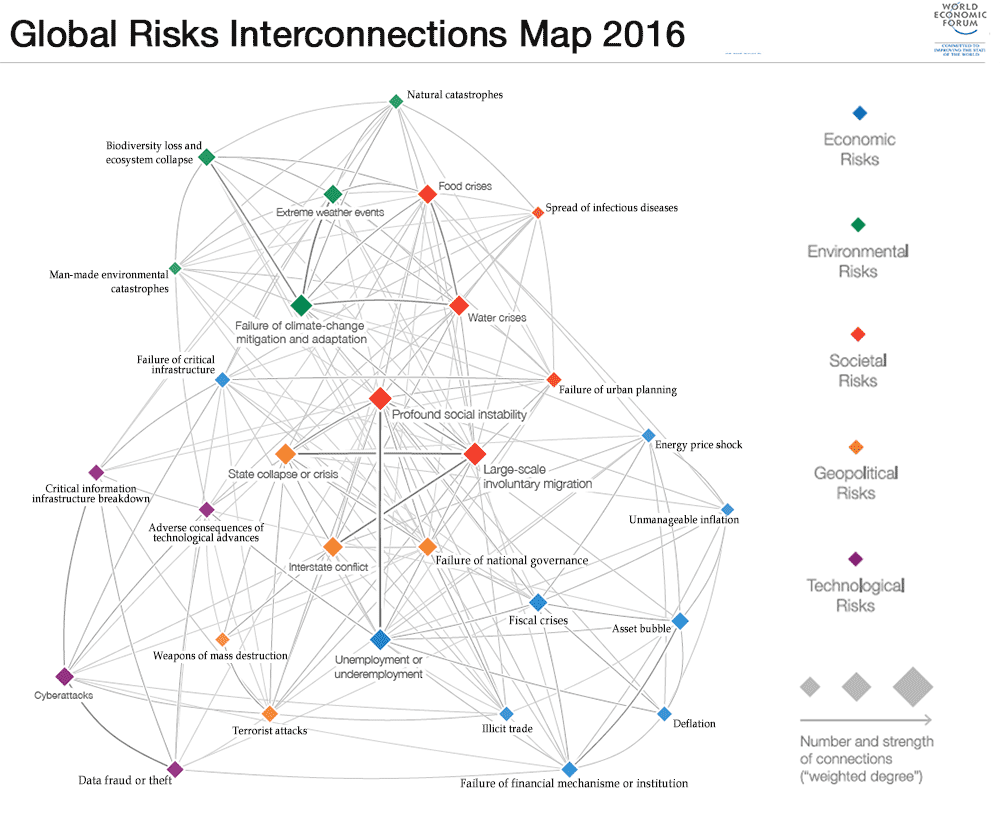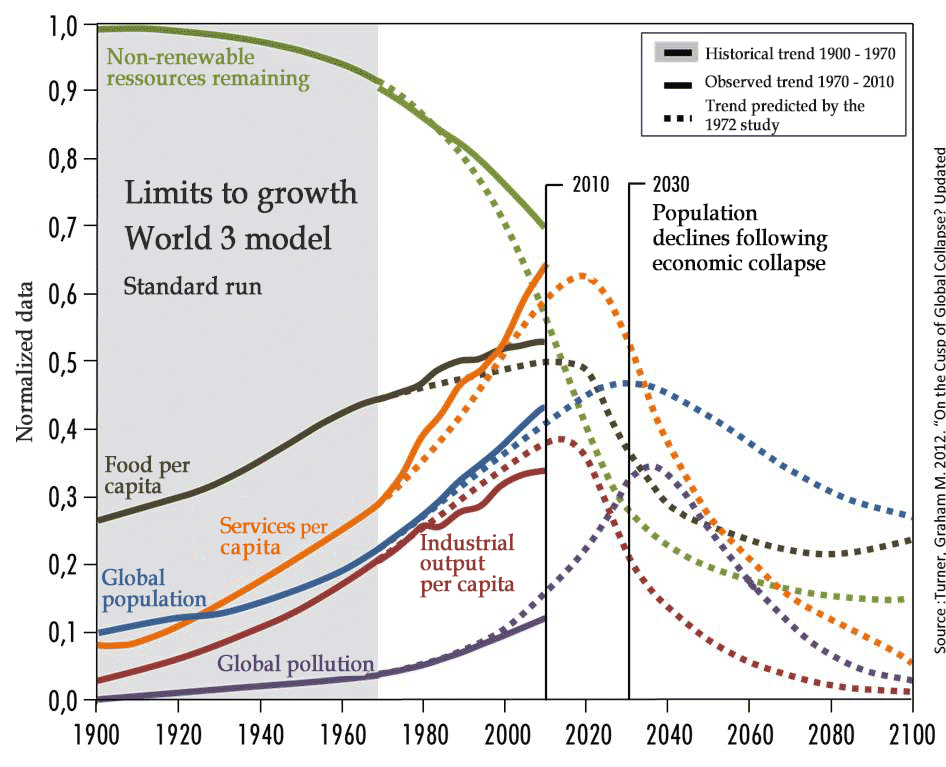# Dark ideology or enlightened catastrophism ?
Global warming, extinction of species, increasing social inequalities and scarcity of fossil fuels (oil, gas, coal, uranium) are some most increasingly shared concerns.
Recently, we have again heard discussion about societal collapse (a well known theory in the 70s which came back in 2005 with Jared Diamond and its book collapse). What is this theory that immediately makes one think of a pessimistic, or even fatal, prediction?

Is the term “societal collapse” not exaggerated? Is it not alarmist? The words are misleading. The word “collapse” indicates neither the end of the world nor the apocalypse, but rather a process at the end of which basic needs such as water, food, clothing, housing, and energy are no longer provided at a reasonable cost to a majority of the population through legally regulated services. The word “collapse” makes us afraid, when it should be making us take action. Most of us remain inert, aware of the numerous environmental and societal problems, but we either cannot or will not act upon them.
Our eyes also deceive us. We do not want to see. For a long time, we have denied the existence of global warming, of health issues, of soil depletion.
These problems are distanced from our daily lives (we speak of problems out of context), so we do not want to take them into account. We take refuge behind our habits, our immediate pleasures, and our personal problems. We find excuses, we “close our eyes.” We wait for others to change before us, such as the Americans or the Chinese, businesses or politicians, who themselves are waiting as well.
In waiting, the issues are amplified: oil is approaching its maximum profitability, and after this limit is surpassed, energy from petroleum will decline, resulting in a global energy decline.
Global warming is worsening, so are related catastrophes. And given that the human population is ceaselessly increasing, the measures currently in place to stop global warming are largely inadequate.
Climatic migrations of unparalleled magnitude are to be expected in the years to come. Biodiversity is dwindling day by day, to the point where today we are talking of the 6th extinction crisis. It is, however, the first to be completely attributed to one species: ours, the Homo sapiens.
Social inequalities are becoming more and more unbearable. The pollution that we generate creates innumerable physical and psychological health problems.
We start talking about a probable collapse when we understand that these serious and growing problems are interconnected and interdependent.
# For a few degrees higher
A team of British researchers, examining studies conducted to date, concluded that our global temperature will increase by four degrees between now and the 2070s, or even the 2060s.
For John Schellnhuber, one of the most influential climatologists in the world, “the difference between two and four degrees is human civilization.” Meanwhile, nothing guarantees that temperatures will cease rising. At this stage, strong positive feedbacks and climate tipping points could lead to a temperature rise of six, or even eight, degrees. The collective decision to do nothing, or next to nothing, leads us down a path that will end in a cul-de-sac; we will have no more control or options at our disposal.

Ecopsychologist Molly Young Brown warns us of our individual responsibilities: “The greatest destruction on our planet is not inflicted by terrorists or psychopathic tyrants. It is the doing of ordinary, law-abiding, churchgoing, family-loving-people, moral people who enjoy their Jeeps, cruises, and hamburgers, unaware of the origin and true cost of these pleasures.”
We Homo sapiens do not want to know and prefer to avert our eyes. Despite this, we sense that our current economic model can no longer function as it was designed, because it stands contrary to a simple fact: there cannot be unlimited growth in a world of limited resources.
# Just one collapse, and the others will follow
The study of systems shows that:
- Systems (cells, individuals, ecosystems) that undergo disturbances progressively lose their ability to adapt (resilience) until they reach a breaking point and suddenly collapse.
- The cascade effect and feedback loops phenomena accelerate the consequences of the collapse.
- As a system, our planet today is highly connected (information, energy, finance, trade, etc.), complex and homogenous with strong socio-technical locks.
In 2014, the World Economic Forum in Davos presented a diagram of the interconnection of risks.

The World3 model, established in 1970 at the Club of Rome, presented forecasts of trends in energy and food resources, demographics, pollution, and industrial production and services. Actual data has overall confirmed these forecasts. Starting in 2020, these forecasts indicate a decline in all resources and all production.

What to conclude ?
We can close our eyes and tell ourselves that everything will continue like before.
Or instead… tell ourselves as Paul Valéry said almost a century ago, “The era of the end of the world is beginning.”
And add, “There will be a place for something other than acts of exploitation, coercion and competition."
… “a place for more cooperation, sharing and mutual support - provided we transform our modes of consumption, function, and our relationship to the living, which we are a part of.”
We must accept the ecological facts and take the road of a limited world today, before it becomes impractical.

